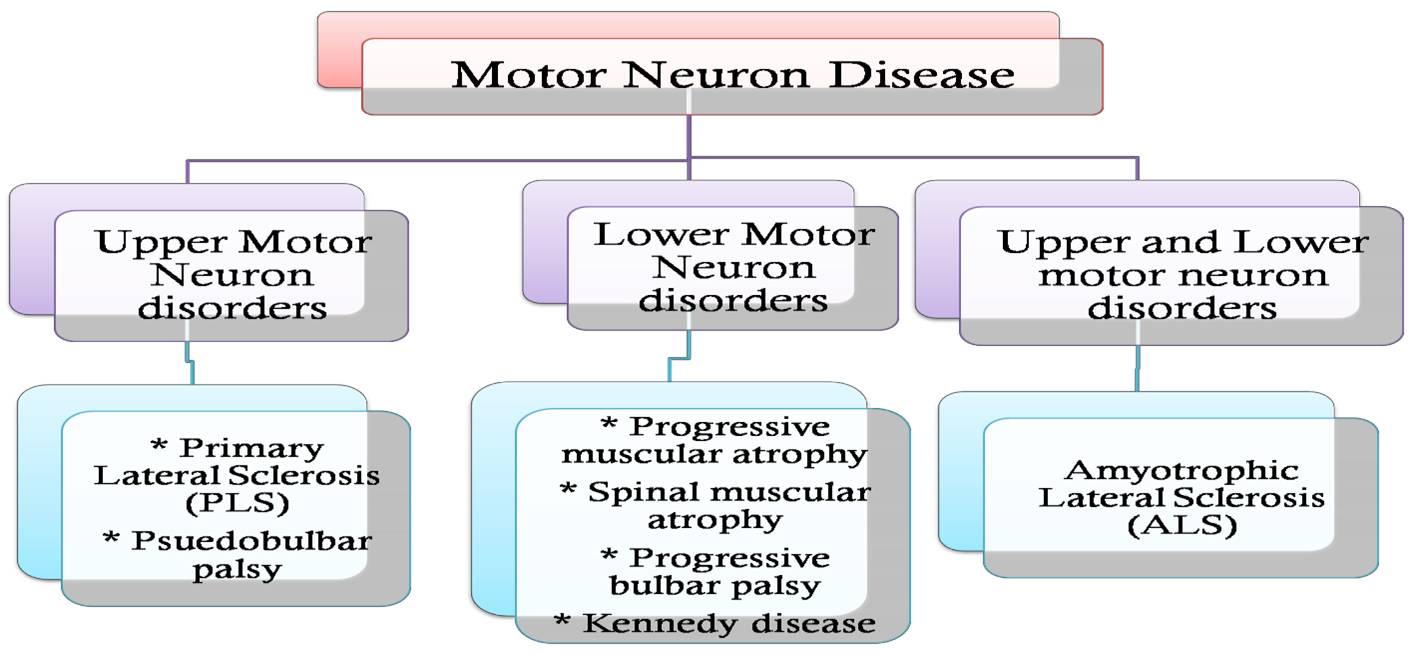What are the types of MND?
- Amyotrophic lateral sclerosis (ALS) – spasticity and flaccidity seen
- Primary lateral sclerosis (PLS) – only spasticity
- Progressive muscular atrophy (PMA)- only flaccidity
- Bulbar- means involvement of mouth, tongue, throat and face – can be 2 subtypes –
- Pseudobulbar palsy – spastic
- Progressive bulbar palsy – spastic and flaccid
What are the signs and symptoms of MND?
Depending on which motor neurons are damaged, that group of muscles will show weakness. Therefore wide varieties of presenting symptoms are seen. Initially one may get easily tired, stamina becomes less, and falls frequently, easily trips while walking. One may notice muscle twitching, excessive muscle cramps, and heaviness of legs or arms, sudden temporary localized muscle weakness.

As the disease progresses, more muscles get weaker and thinner (muscle atrophy). There is lot of weight loss as muscles get wasted. Arms, legs, trunk, neck or mouth, throat and face muscles can get involved in any order.
As legs get weaker, there is foot drop, dragging of feet, unable to get up from floor or low chair, difficulty climbing up and down staircase, imbalance while walking which may necessitate use of cane, crutches, walker and eventually wheelchair.
As arms and hands become weak, handwriting worsens, unable to carry bags, lift utensils or cut vegetables, unable to cook, difficulty buttoning shirt & zipping trousers, difficulty lifting up arms resulting in inability to comb or wash hair, difficulty in bathing, dressing & toileting. Later one needs help for feeding, brushing and all activities of daily living.
Trunk muscle weakness can cause difficult to get up from lying down position, inability to bend, sitting and standing imbalance, difficulty rolling in bed. Neck muscles involvement causes drooping of head.
Bulbar muscles mean throat, mouth, tongue, face muscles. They can get affected at the onset or at any stage of progression. When they get involved, it causes slow unclear speech (slurring, nasal twang), hoarse and weak voice, difficulty swallowing and frequent choking spells.
Respiratory or breathing muscles weakness initially causes weak cough, weak sneeze and shortness of breath. And with progression eventually mechanical ventilator support may be required.
What about sensations, memory, emotions and mood?
The sensations are completely normal or sometimes hypersensitive. The memory, thinking and higher functions are also normal. But in few cases there is complication of frontotemporal dementia which affects complex functioning.
In MND emotions get excessive and difficult to control e.g uncontrolled laughter, trivial issues trigger crying. Depression, anger, frustration can be seen and may be difficult to cope. Mood swings or apathy may be present.








